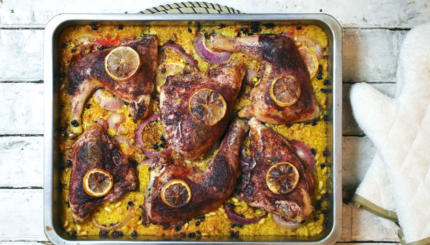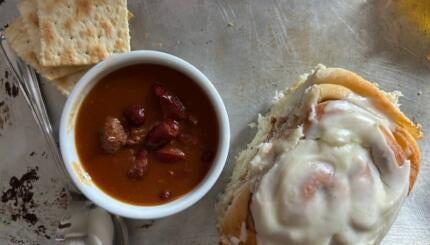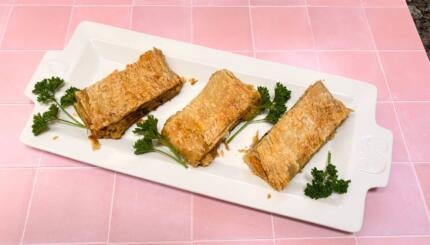Jewish culture has two very strong, often interconnected traditions we all like to frequently conference: food and guilt.
This food-guilt, at least in my experiences of living in an Ashkenazi Jewish home and speaking with many Jews in many different Jewish communities, falls heavily on Jewish women, particularly young Jewish women. I see this problem in many places, but I want to discuss two main phenomena I have experienced:
- Feeling guilty for not knowing how to make (or knowing, but not frequently making) our ancestors’ traditional recipes;
- Feeling guilty for knowing and using those recipes, as a woman—and perpetuating the tradition of a Jewish woman’s place being in the kitchen
In this blog, I attempt to go through each of these cases, explaining where I see the intersections between the Jewish traditions of food and guilt, and trying to disconnect them to create a more positive Jewish food culture.
Up first: guilt about not knowing or using ancestral recipes is a special kind of guilt that comes from being in an ever-assimilating minority group. Losing or giving up our recipes food feels like we’re failing our ancestors. I was lucky to have the opportunity to inherit many important recipes: brisket, matzah ball soup, potato kugel, and latkes. Last year, my grandmother taught me the knish recipe so that I could continue the tradition of making them. Turns out, grandma’s knishes have two important secrets. Hilariously, the first one is store-bought crescent roll dough. Decadently, the second one is shmaltz, rendered chicken fat.
Despite my grandmother’s best efforts to teach me, with every holiday that passes, I am conscious of my family losing some of these food secrets, and I feel guilty for wanted to let go of the knishes because although they taste darn good… you won’t catch me melting chicken fat out of the skin anytime soon. I feel a little guilty about that. But I hope that moving forward, I will be able to let go of that negativity. I think one way to make this shift is to reframe the issue. I am now trying to focus on the ways that the food traditions that do remain bring my family together in even more meaningful ways.
Case number two, guilt about traditional gender roles, is something that women have been talking about for a while now—as evidenced in this really interesting article from Bon Appetit. Especially in Jewish communities, where respect for our elders and strong feminism sometimes can feel like conflicting values, younger generations of women want to escape the burdens of traditional gender roles (like cooking), so frying latkes for Chanukah parties, kneading challah for Shabbat, and braising briskets for every holiday can be… guilt-inducing, especially if we women are the only ones doing it.
Am I still being my strongest, most feminist self when I find myself helping in the kitchen at every Jewish holiday celebration?
Of course I am!
The author of the Bon Appetit article, Julia Black helped me see why when she wrote: “Cooking, like feminism, can take many forms. It can be an act of nurturing, a statement of love, a playground for experimentation, or a method of self-care. No woman should be shamed into cooking, and no woman should be shamed out of it.”
In Jewish communities, we need to remember that as long as we haven’t been forced into the kitchen, there is no reason to feel guilty for being there. Frying latkes is tons of fun, kneading challah can be super cathartic, and the hours that brisket takes to slow cook are worth it for the way the kitchen smells as a result (in my opinion).
I cannot hope in this single blog post to unwind the strands of time that bound food and guilt so tightly together in Jewish women’s lives—and we haven’t even talked about the other guilty-weight traditional foods can carry (pun intended). If I can really accomplish anything, it is to remind young Jewish women that the best (and only) way we should partake in Jewish food culture… is in the ways that are genuinely, personally meaningful to each of us.



